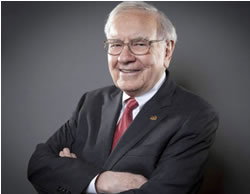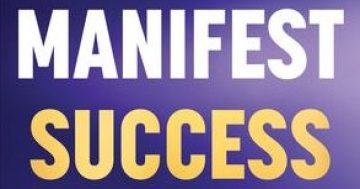Marcel Schwantes* says Warren Buffett became a self-made billionaire because he played by one simple rule of life that most people ignore.
 Berkshire Hathaway Chairman and CEO, Warren Buffett (pictured) will always be remembered as an investing luminary.
Berkshire Hathaway Chairman and CEO, Warren Buffett (pictured) will always be remembered as an investing luminary.
But so often you’ll find Buffett expounding on things outside of his investing mastery.
In HBO’s 2017 Becoming Warren Buffett documentary, Buffett taught a group of high school students not about money advice but about how to live a good life, and how becoming a good person means you’ll also become a successful businessperson.
It’s what was passed on from Buffett’s father to Warren — the principle of having an “Inner Scorecard” rather than an “Outer Scorecard.”
Either one can get you to success, but one matters more than the other.
Buffett said: “The big question about how people behave is whether they’ve got an Inner Scorecard or an Outer Scorecard.”
“It helps if you can be satisfied with an Inner Scorecard.”
Unpacking Buffett’s “inner scorecard” principle
An outer scorecard is what most people have or want, often driven by hubris, greed, or a life lived off-balance.
It’s an external measure of success that attempts to answer elusive questions like, “What do people think of me, my success, my image, or my brand?”
The inner scorecard is intrinsic and it defines who you are at the core of your values and beliefs.
The focus is on doing the right things and serving people well instead of on what other people think of you.
In one simple but hard-to-attain word in business, it’s about being authentic.
The inner scorecard has been the Warren Buffett way and what has worked for the self-made billionaire his entire life.
It’s taking the higher road and it’s paid off for Buffett.
Investor and author Guy Spier writes in his book The Education of a Value Investor, “One of Buffett’s defining characteristics is that he so clearly lives by his own inner scorecard.”
“It isn’t just that he does what’s right, but that he does what’s right for him.”
“There’s nothing fake or forced about him.”
“He sees no reason to compromise his standards or violate his beliefs.”
Here are four examples of how living by your own inner scorecard can lead to success, as it has for Buffett.
- Start with what you teach your kids
In Alice Schroeder’s The Snowball: Warren Buffett and the Business of Life, she quotes Buffett offering a parenting tip: “In teaching your kids, I think the lesson they’re learning at a very, very early age is what their parents put the emphasis on.”
“If all the emphasis is on what the world’s going to think about you, forgetting about how you really behave, you’ll wind up with an Outer Scorecard.”
“Now my dad: He was a 100 per cent Inner Scorecard guy.”
- Beware of who you hang out with
One summer after graduating from Columbia University, Buffett had to fulfil his obligation to the National Guard and attend training camp for a few weeks.
That experience taught him one incredible lesson: hang around people who are better than you.
Buffett said in The Snowball, “To fit in, all you had to do was be willing to read comic books.”
“About an hour after I got there, I was reading comic books.”
“Everybody else was reading comic books, why shouldn’t I?”
“My vocabulary shrank to about four words, and you can guess what they were.”
“I learned that it pays to hang around with people better than you are because you will float upward a little bit.”
“And if you hang around with people that behave worse than you, pretty soon you’ll start sliding down the pole.”
“It just works that way.”
- Don’t forget the only two rules of investing you’ll ever need
Buffett pares down his inner scorecard investment philosophy to two simple sound bites.
He says, “Rule No. 1: Never lose money. Rule No. 2: Never forget rule No. 1.”
Yes, he’s made billions but he has also personally lost billions — about $23 billion during the financial recession of 2008.
What Buffett alludes to here is mindset — having a sensible approach to investing.
That means doing your homework, finding sustainable businesses with good reputations, and avoiding being frivolous and gambling away your money.
Buffett never invests prepared to lose money, and neither should you.
- Never waver away from what matters most to you
Buffett’s success is not so much about what he has done as it is about what he hasn’t done.
With all the demands on him every day, Buffett learned a long time ago that the greatest commodity of all is time.
He simply mastered the art and practice of setting boundaries for himself.
That’s why this Buffett quote remains a powerful life lesson.
The mega-mogul said: “The difference between successful people and really successful people is that really successful people say no to almost everything.”
This advice speaks directly to our inner scorecard.
We have to know what to shoot for to simplify our lives.
It means saying no over and over again to the unimportant things flying in our direction every day and remaining focused on saying yes to the few things that truly matter.
* Marcel Schwantes is a speaker, leadership coach, consultant and columnist. His website is www.marcelschwantes.com. He tweets at @MarcelSchwantes.
This article first appeared at www.inc.com.











